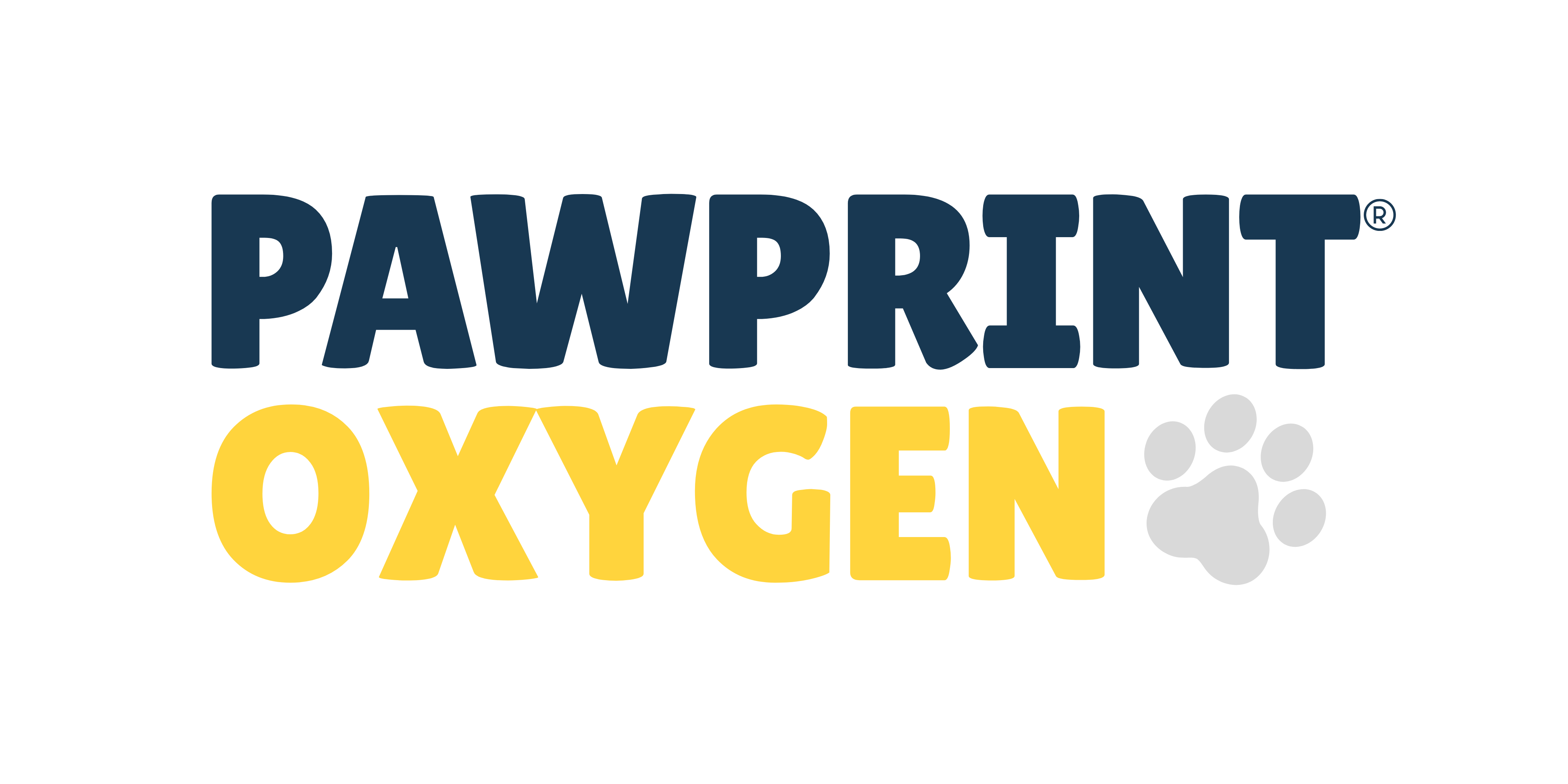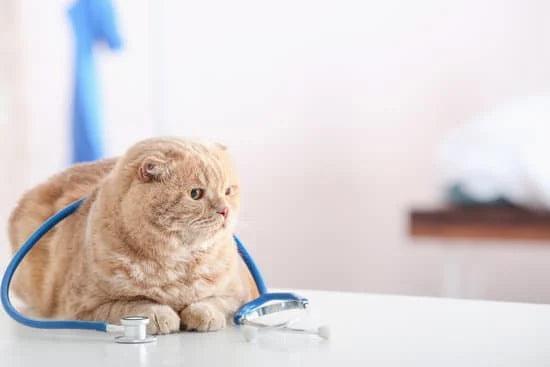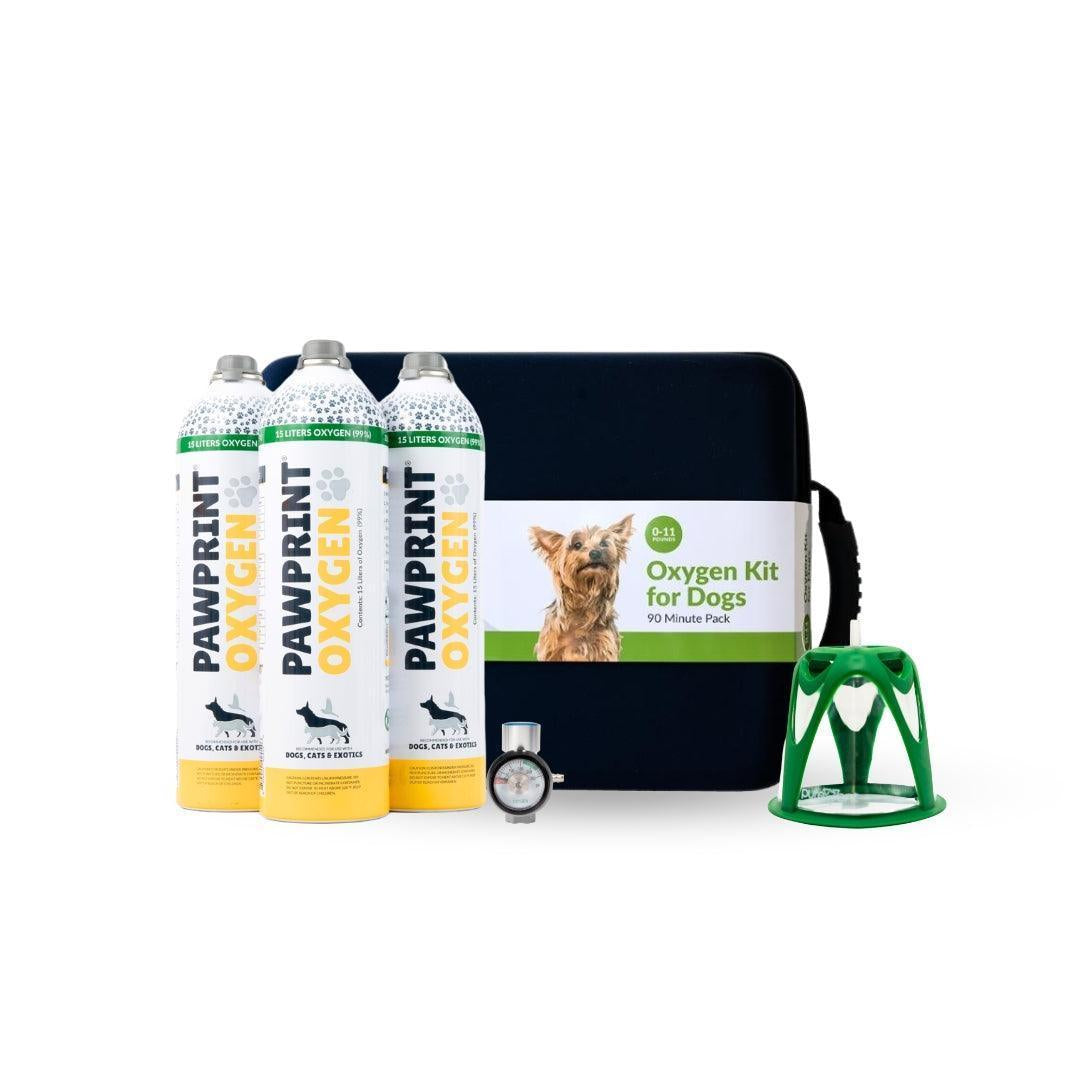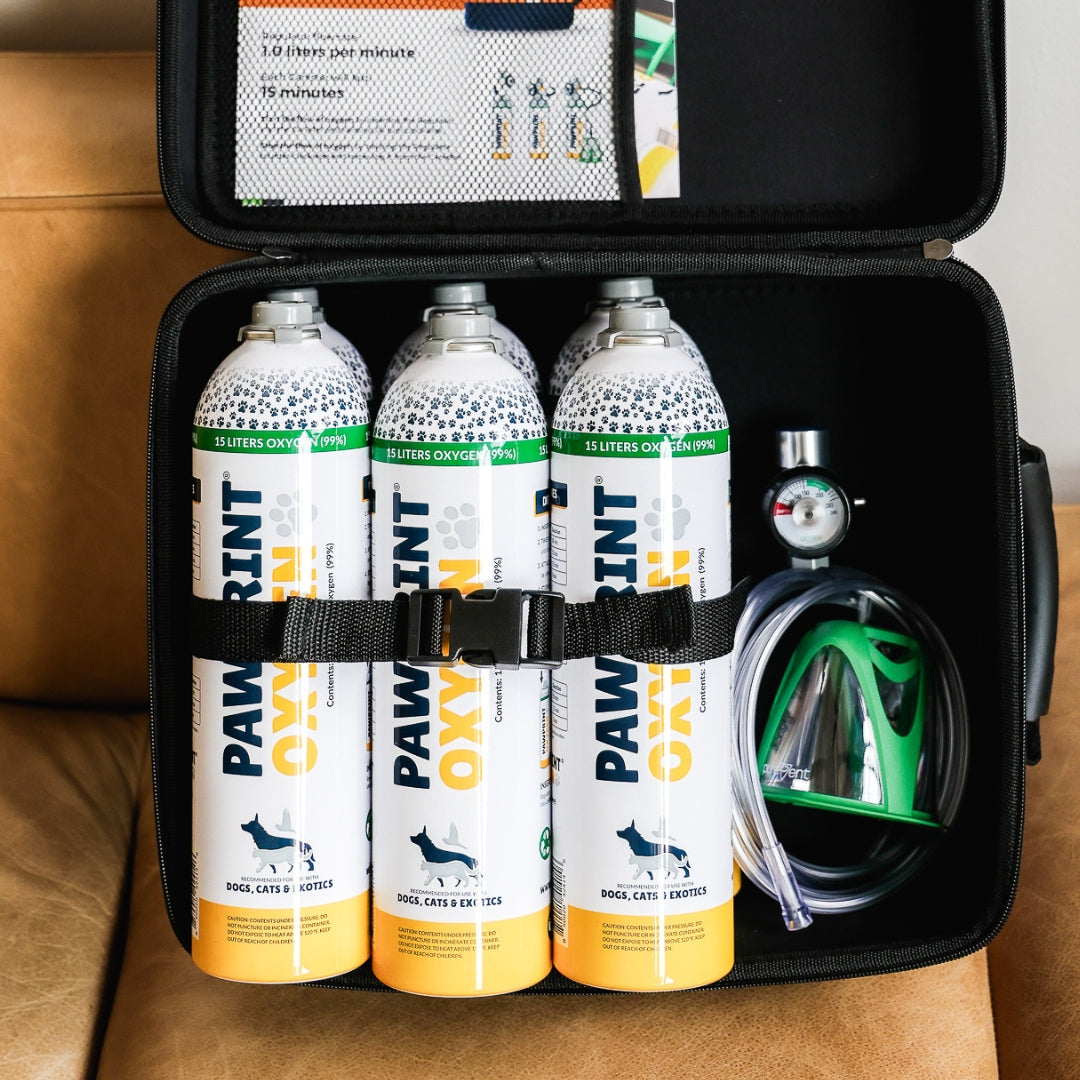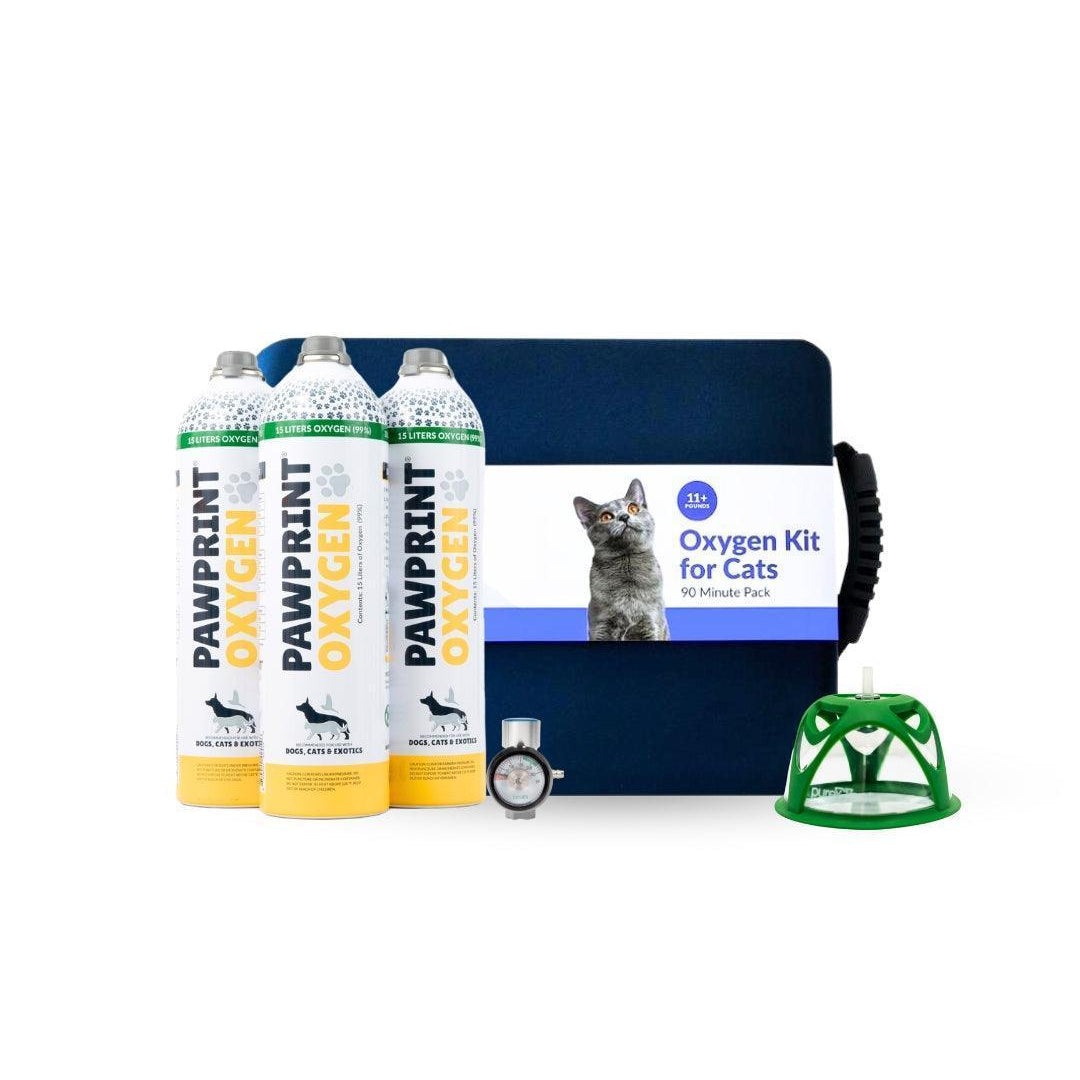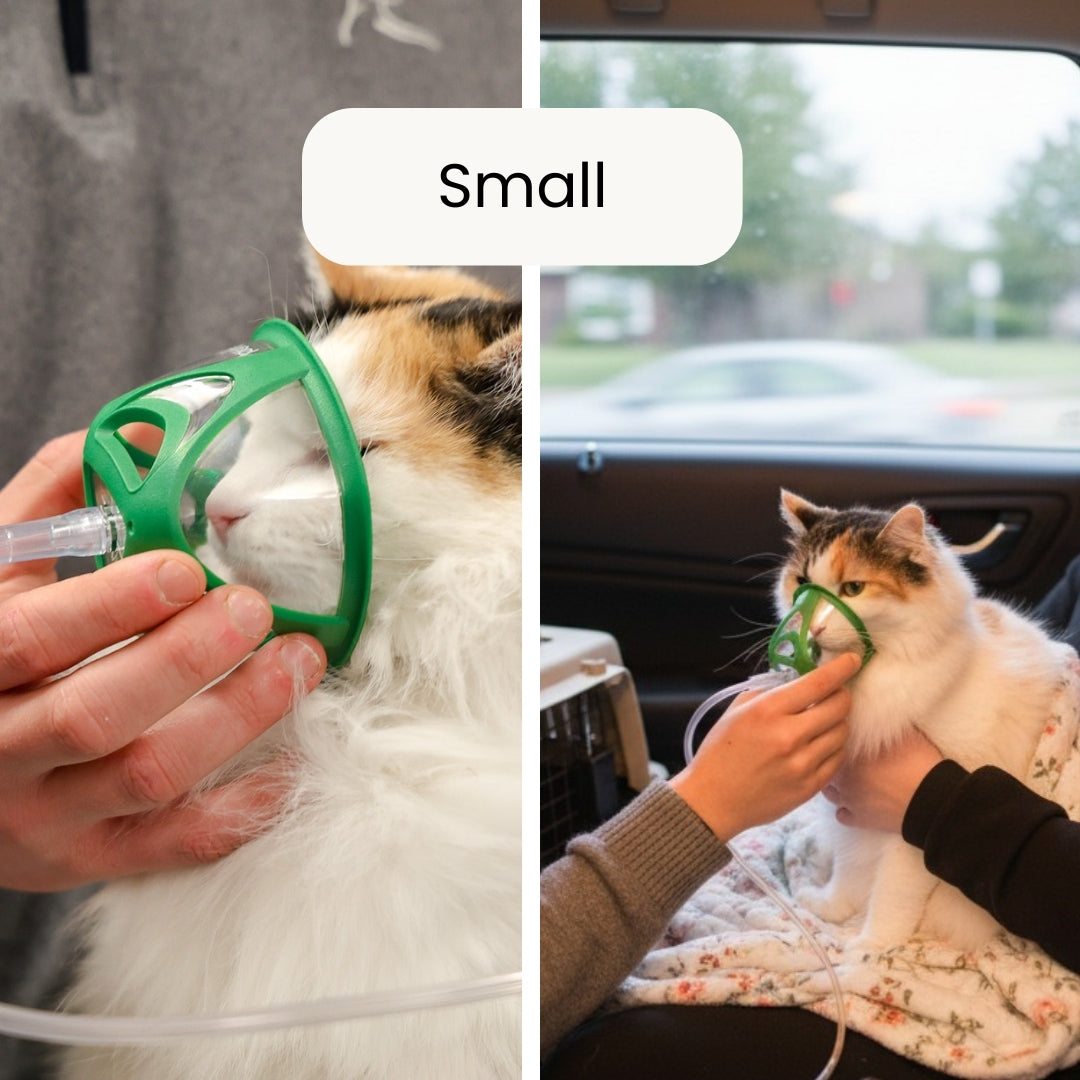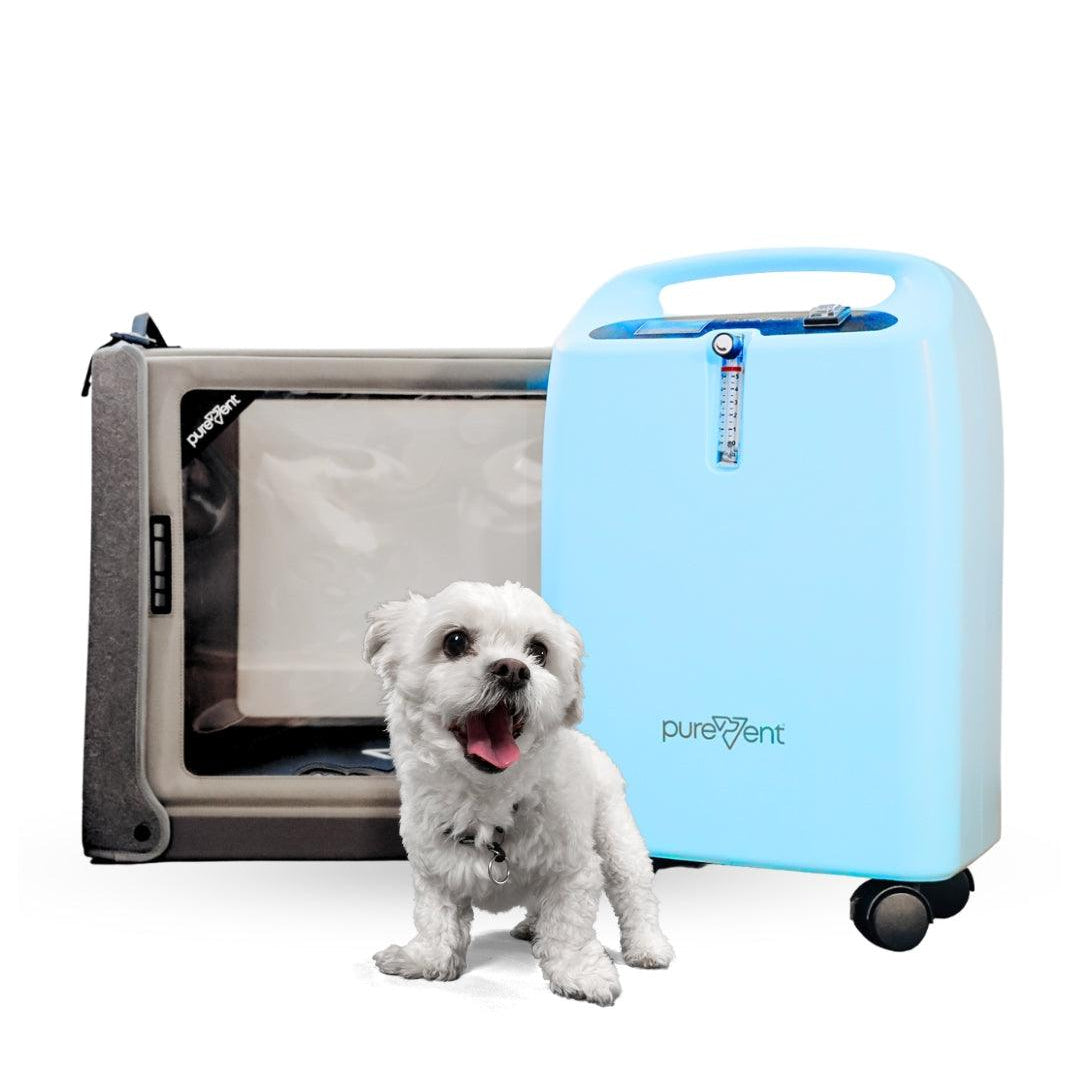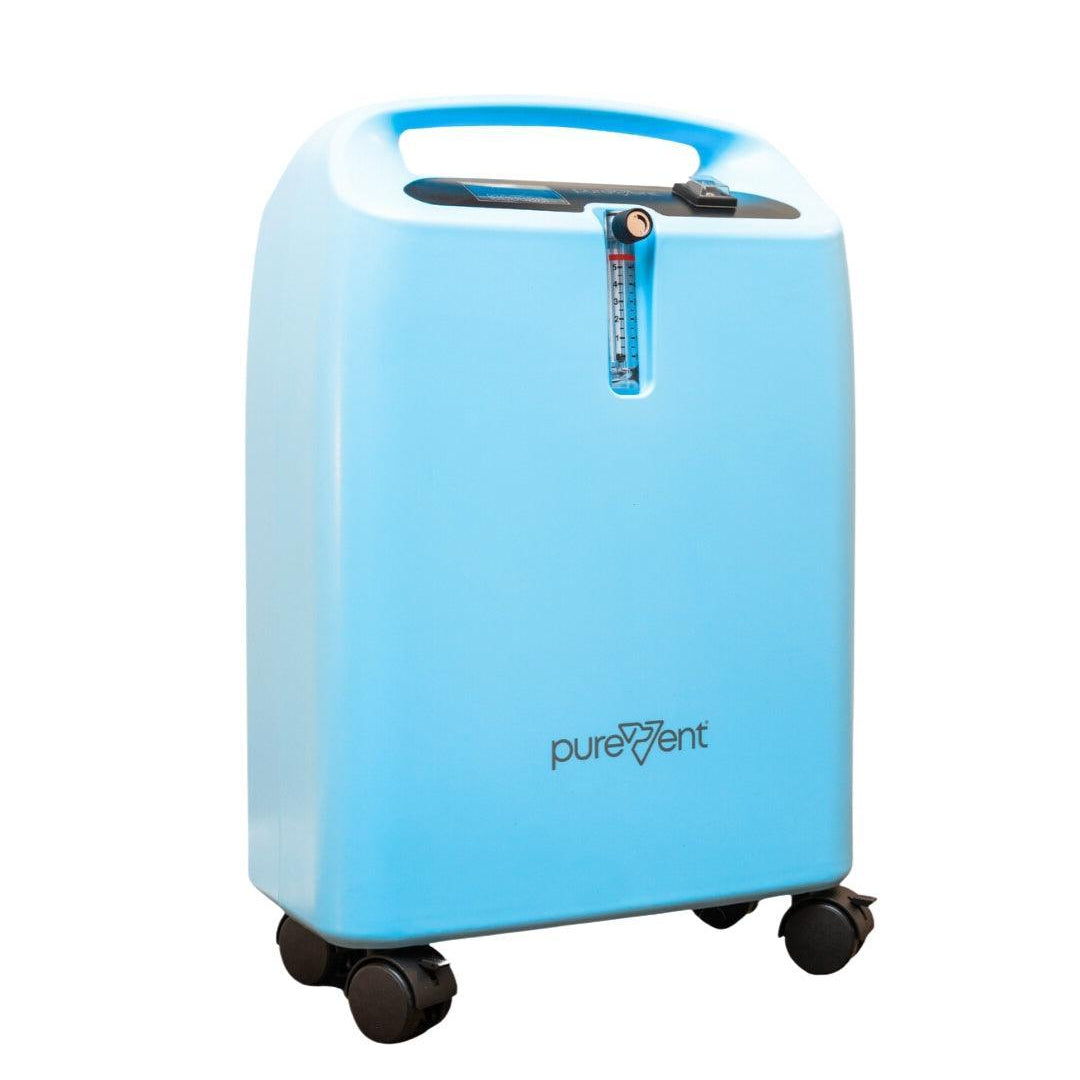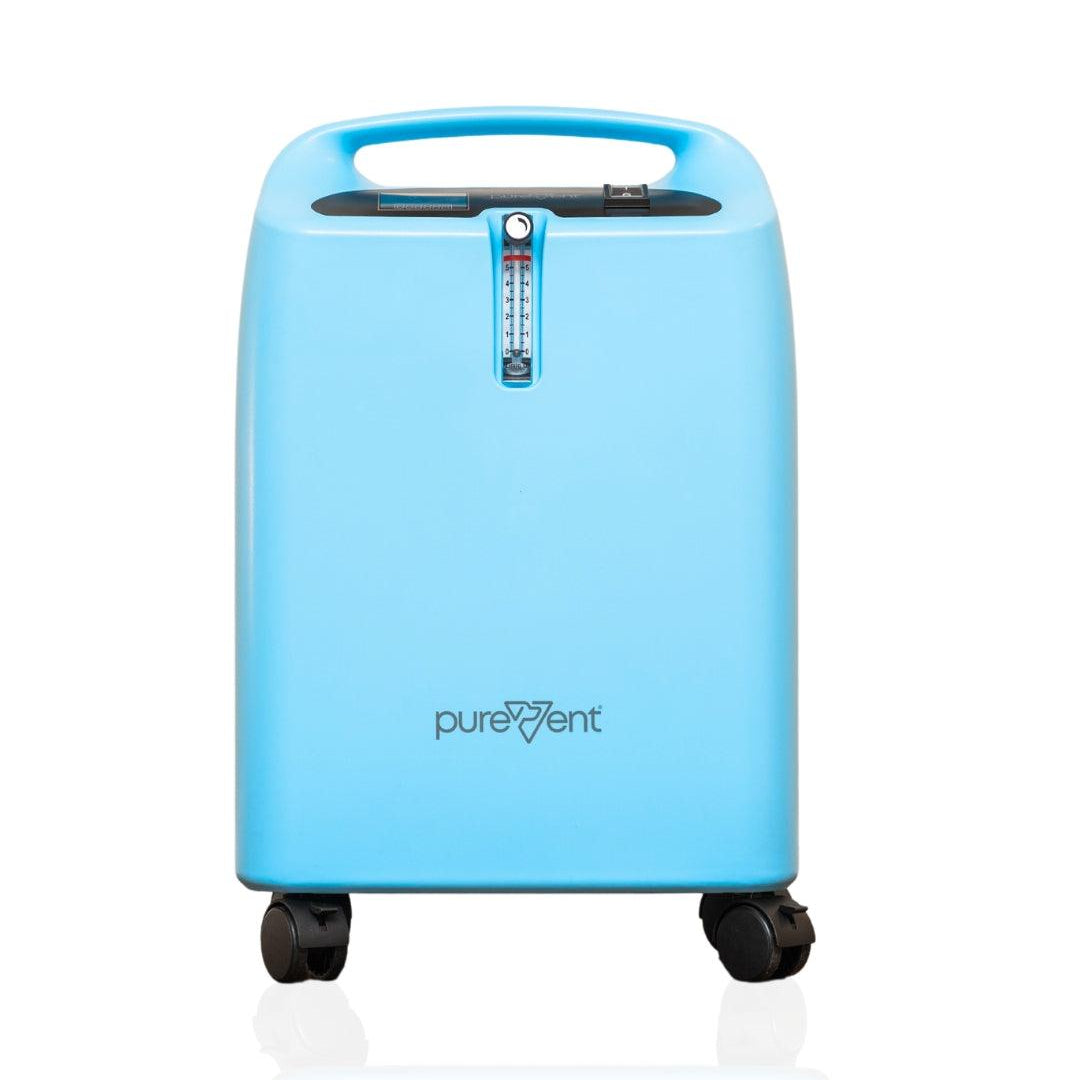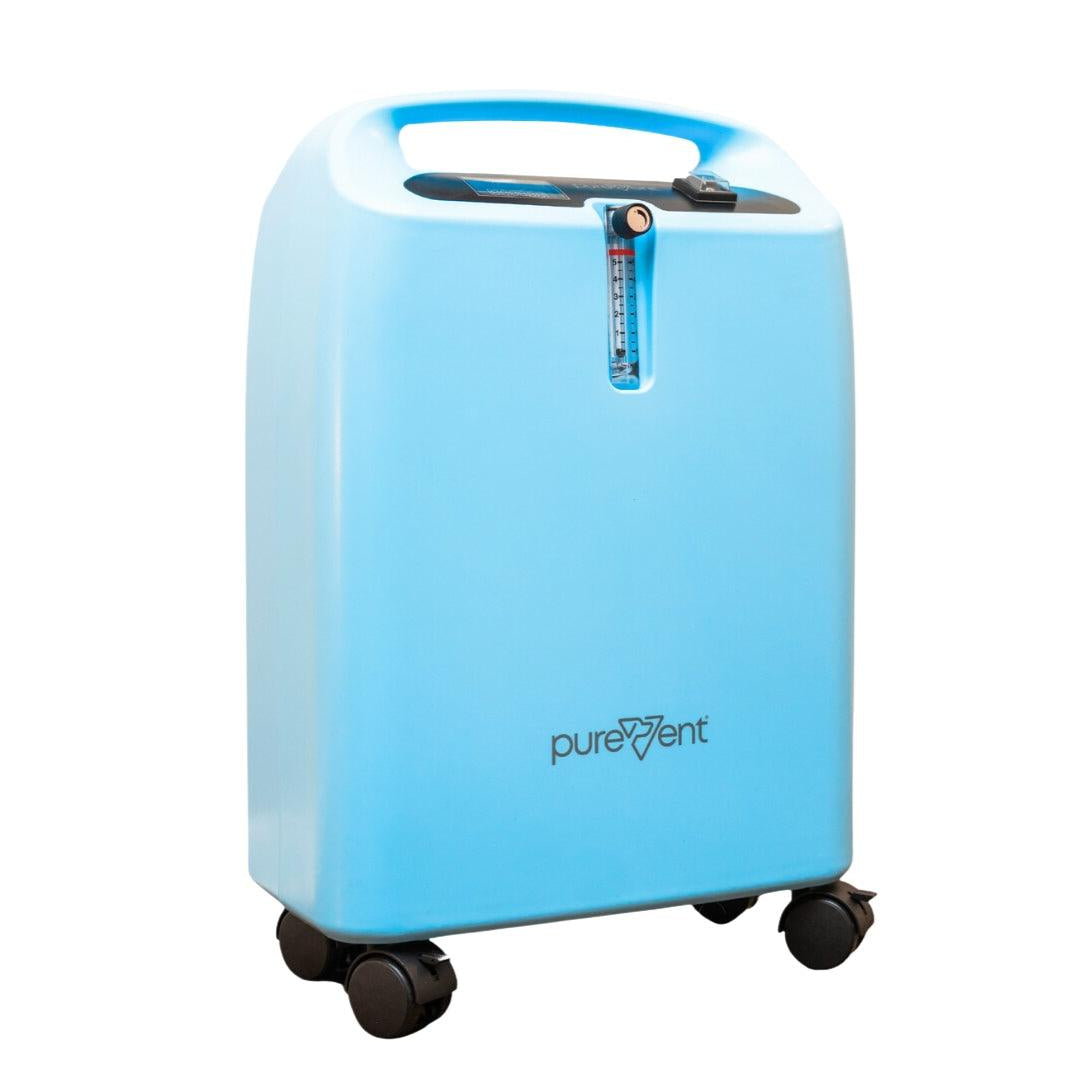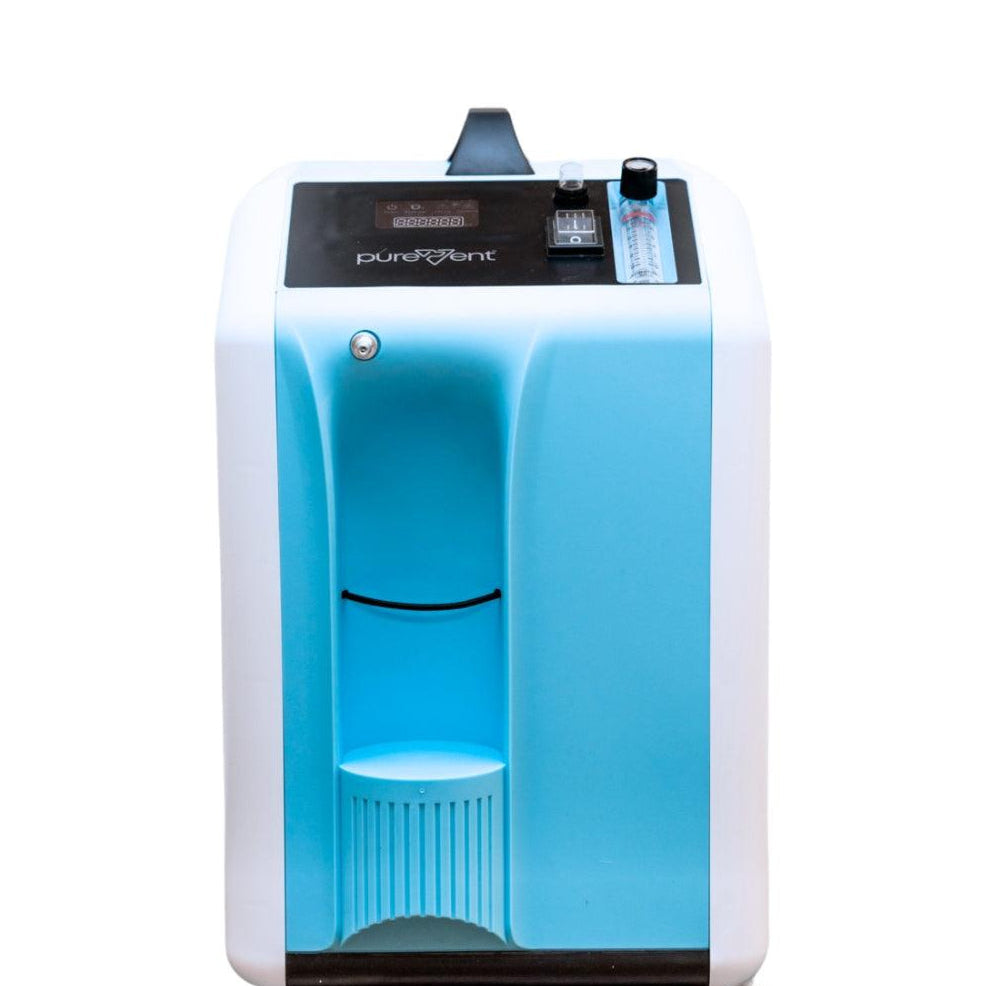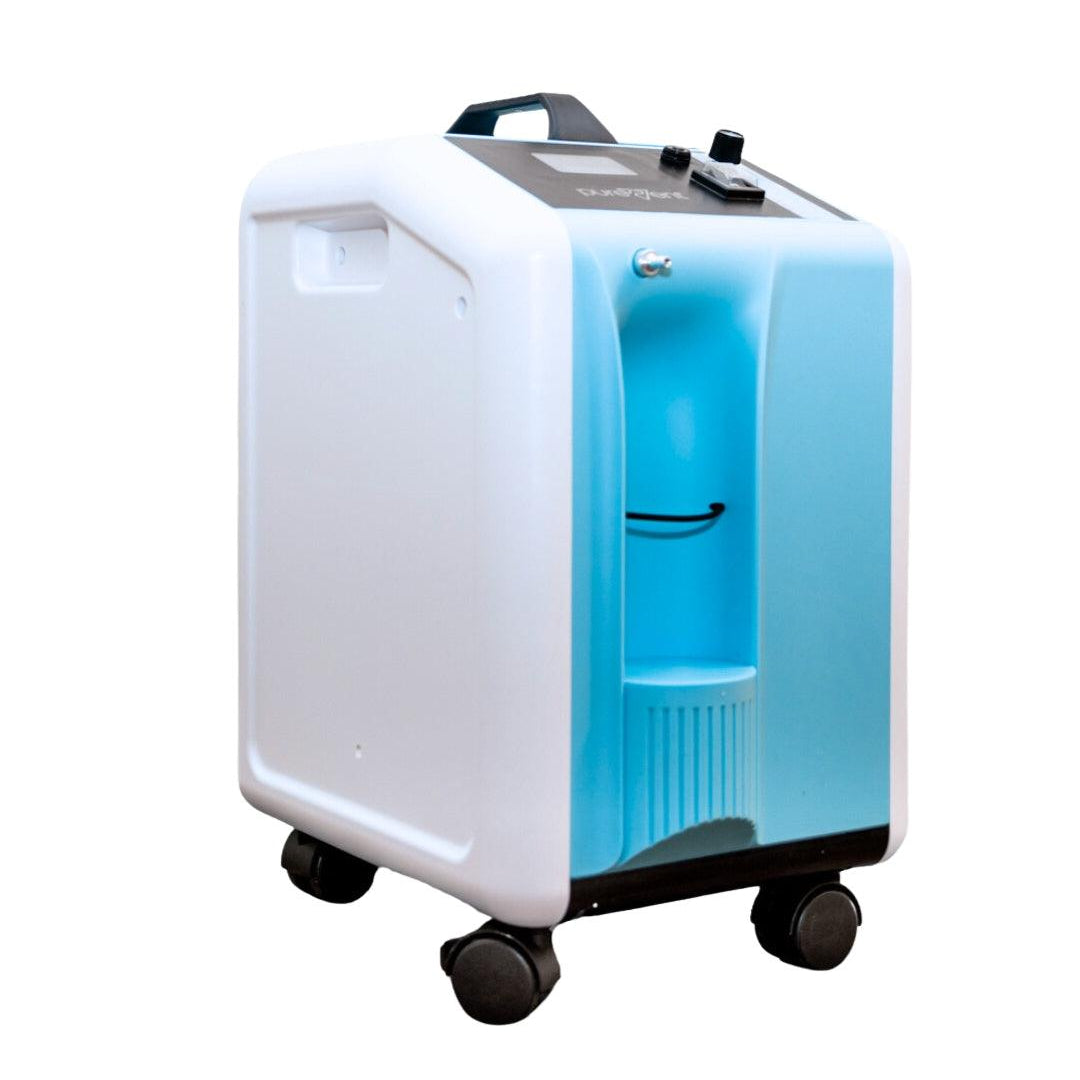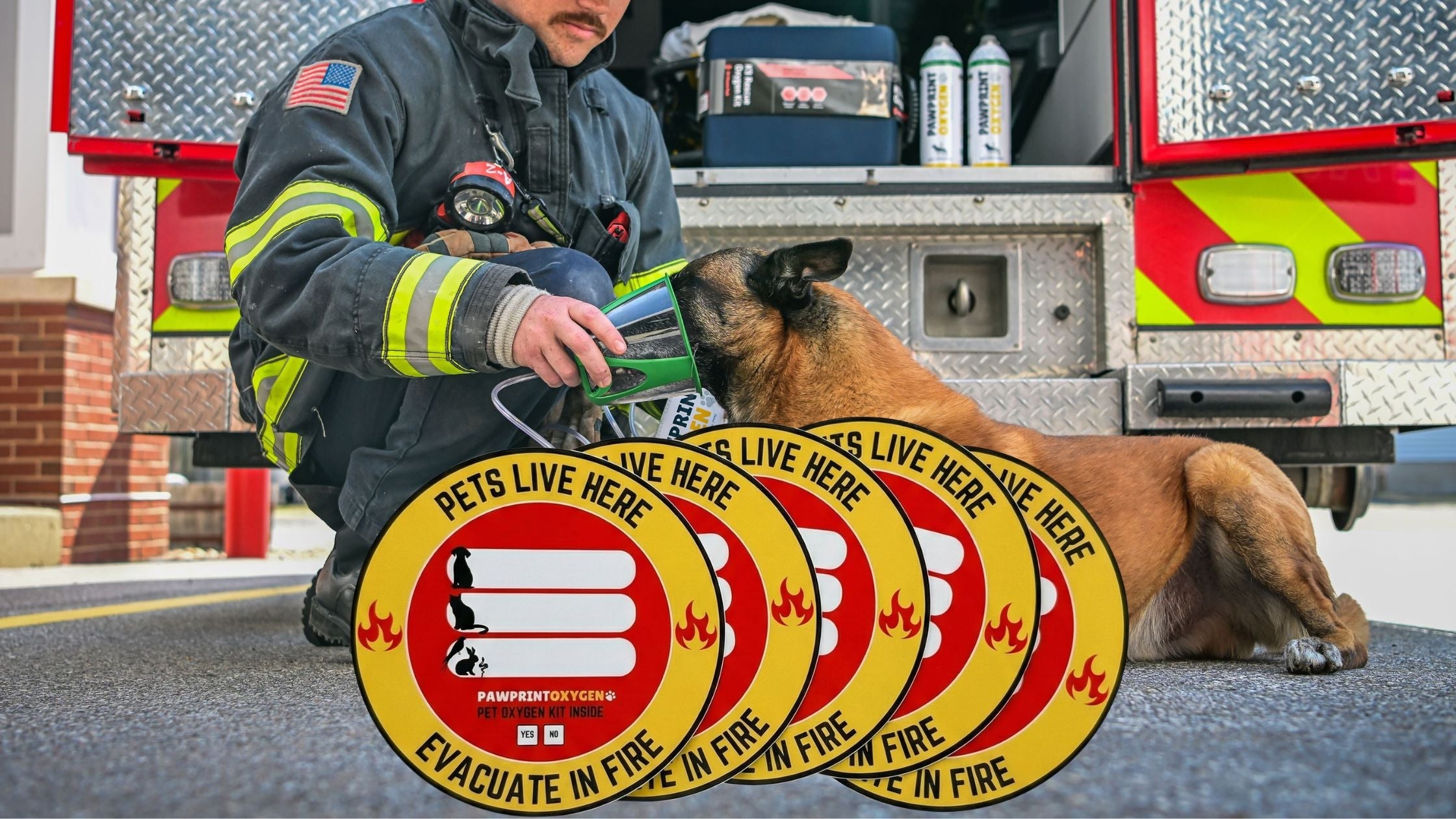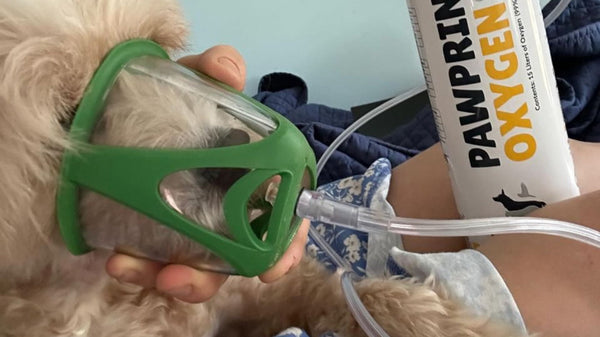Congestive Heart Failure (CHF) happens when your pet’s heart can’t pump blood effectively, leading to fluid buildup in the lungs or other parts of the body. It’s a serious condition, but early detection can make a big difference.
By learning to recognize the warning signs and getting prompt veterinary care, you can help your pet live a more comfortable and longer life. This article will walk you through the symptoms of CHF and what to do if you’re concerned your pet is showing signs of having congestive heart failure.

Table of Contents
What is Congestive Heart Failure (CHF) in Pets?
Congestive heart failure occurs when your pet’s heart is no longer able to pump blood efficiently. This causes blood to back up in the lungs, abdomen, or other parts of the body, leading to a buildup of fluid that can make it difficult for your pet to breathe or function normally.
There are two main types of CHF:
- Left-sided heart failure: the most common form and typically leads to fluid accumulation in the lungs (pulmonary edema), causing coughing, labored breathing, and fatigue.
- Right-sided heart failure: this type of heart failure causes fluid to build up in the abdomen or limbs (ascites or edema), often leading to a swollen belly and reduced energy levels.
CHF can be caused by a variety of underlying conditions. Some breeds are more prone to heart problems due to genetics.
Common causes of CHF include:
- Degenerative valve disease (especially in small dogs like Cavalier King Charles Spaniels)
- Dilated cardiomyopathy (DCM), which is more common in larger dog breeds
- Hypertrophic cardiomyopathy (HCM), which often affects cats
- Heartworm disease, which can damage the heart and pulmonary arteries over time
Understanding what congestive heart failure is, and what causes it, can help you act quickly if your pet starts showing symptoms. In the next section, we’ll cover the most common signs of CHF in both dogs and cats.
Common Signs of CHF in Dogs and Cats
Congestive heart failure can affect pets in different ways, but there are several telltale signs that pet owners should be aware of. Many of these symptoms develop gradually and may be mistaken for normal aging, so it’s important to stay alert to any changes in your pet’s behavior, breathing, or physical appearance.
Respiratory Changes
One of the earliest and most noticeable signs of CHF is difficulty breathing. You may observe:
- Labored or heavy breathing, even when your pet is at rest
- Persistent coughing, often worse at night or after mild activity
- Rapid breathing (more than 30 breaths per minute while sleeping or resting)
These symptoms may indicate fluid buildup in the lungs and should never be ignored.
Behavioral and Physical Changes
CHF often causes your pet to feel fatigued or weak. You may notice:
- Lethargy or lack of interest in usual activities
- Reluctance to walk, run, or play
- Loss of appetite or disinterest in food
These signs can easily be mistaken for other issues, so pairing them with respiratory symptoms should raise concern.
Is congestive heart failure more prevalent in certain dog breeds?
Yes, congestive heart failure (CHF) is more prevalent in certain dog breeds due to genetic predispositions and breed-specific health concerns.
Dog breeds that may be predisposed to CHF:
- Cavalier King Charles Spaniel
- Miniature and Toy Poodles
- Dachshund
- Doberman Pinscher
- Great Dane
- Boxer
- Irish Wolfhound
- Cocker Spaniel
What foods should I avoid feeding my dog with CHF?
If your dog has congestive heart failure, avoid feeding foods high in sodium, as excess salt can lead to fluid retention and worsen heart strain. This includes processed treats, deli meats, cheese, canned foods with added salt, and table scraps like chips or fast food . Also, steer clear of high-fat foods that may contribute to obesity, putting additional stress on the heart. Certain commercial dog foods may contain excessive sodium, so opt for low-sodium, heart-healthy diets recommended by your vet. Additionally, some dogs with CHF may require taurine and L-carnitine supplementation, so avoid grain-free diets linked to taurine deficiency-associated dilated cardiomyopathy (DCM) unless specifically advised by your veterinarian.
Can CHF go away on its own, or is it permanent?
Congestive heart failure does not go away on its own and is generally a progressive, lifelong condition. While it cannot be cured, early diagnosis and proper management with medications, dietary adjustments, supplemental oxygen therapy, and lifestyle changes can slow its progression and improve your dog's quality of life.
Treatment for CHF typically includes diuretics to reduce fluid buildup, ACE inhibitors to ease heart strain, and supportive therapies like oxygen or taurine supplementation if needed. Regular veterinary check-ups are essential to monitor heart function and adjust treatment and diet as needed. While CHF is permanent, proactive care can help your dog live a longer, more comfortable life.

Physical Appearance Changes
As CHF progresses, you may see changes in your pet’s body that signal serious heart trouble:
- Distended abdomen from fluid buildup (especially in right-sided heart failure)
- Pale or bluish gums, which indicate poor oxygenation
- Weight loss or visible muscle wasting, especially in senior pets
- Fainting episodes (also known as syncope), often triggered by activity or excitement
If your pet is showing one or more of these signs, it’s essential to seek veterinary care right away. The sooner CHF is diagnosed, the more effectively it can be managed. In the next section, we’ll look at how symptoms can differ between dogs and cats.
Specific Symptoms: Dogs vs. Cats
While congestive heart failure can affect both dogs and cats, the symptoms often present differently between the two species. Understanding these distinctions can help you spot trouble early and get your pet the care they need.
CHF Symptoms In Dogs
Dogs with CHF often display more obvious symptoms, especially related to their breathing and activity level. Common signs include:
- Frequent coughing, especially at night or after light activity
- Exercise intolerance, where your dog tires easily or avoids physical activity
- Panting or rapid breathing, even when at rest
- Restlessness or difficulty settling down, particularly when lying down
These signs usually result from fluid buildup in the lungs and the heart’s reduced ability to handle increased demand during activity.
CHF Symptoms In Cats
Cats tend to hide signs of illness, which can make CHF harder to detect until it becomes more advanced. Unlike dogs, coughing is rare in cats with heart disease. Instead, watch for more subtle symptoms like:
Open mouth breathing or gasping
Increased respiratory rate or effort, even while sleeping
Hiding, withdrawing from interaction, or changes in behavior
Sudden paralysis of the hind limbs, which may occur if a blood clot forms and travels to the legs (a complication of feline heart disease)
Collapse or fainting
Because cats are so skilled at masking symptoms, even small changes in breathing or behavior warrant immediate veterinary attention. Early intervention can dramatically improve their outcome and comfort.
How to Monitor Your Pet at Home
Keeping a close eye on your pet’s day-to-day behavior is one of the best ways to catch early signs of congestive heart failure. While nothing replaces a professional veterinary diagnosis, there are simple steps you can take at home to monitor your pet’s health, especially if they are at risk of heart disease.
Check Your Pet’s Resting Respiratory Rate
One of the most important tools for early detection is monitoring your pet’s resting respiratory rate (RRR). Here’s how to do it:
- Wait until your pet is sleeping or completely relaxed—not panting or active.
- Count how many times their chest rises and falls in one minute (each rise and fall counts as one breath).
- A normal rate is typically under 30 breaths per minute for both dogs and cats. If the rate is consistently higher, it could be a sign of fluid buildup in the lungs and should be evaluated by a veterinarian.
Consider keeping a daily log to track changes over time. There are also mobile apps that can help you record and monitor respiratory rates.
Watch for Patterns of Fatigue, Breathing Changes, or Appetite Loss
Subtle changes in behavior can be early indicators of CHF:
- Is your pet sleeping more or tiring easily after minimal activity?
- Are they breathing heavier or faster than usual, especially when resting?
- Has their appetite decreased or are they showing less interest in food?
These gradual shifts can be easy to miss but may signal that your pet’s heart is struggling.
Take Note When Symptoms Worsen with Activity or Stress
Pets with CHF often tolerate rest but become symptomatic during physical exertion or stressful situations. You might notice:
- Coughing after walks or playtime
- Heavy panting or collapse during excitement
- Difficulty recovering from even mild exertion
If your pet seems to get worse during or after activity, it’s time to talk to your veterinarian. In the next section, we’ll cover the warning signs that indicate your pet needs immediate veterinary care.
Symptoms That Require Urgent Evaluation by a Veterinarian
Recognizing when your pet needs immediate veterinary care can make a life-changing difference if they are developing congestive heart failure (CHF). Some symptoms indicate an emergency and should never be ignored.
If you notice any of the following symptoms, it’s crucial to contact your veterinarian or an emergency veterinary hospital right away:
Rapid or labored breathing, especially if your pet is open mouth breathing or struggling to catch their breath
Pale, gray, or bluish gums and tongue
Collapse or fainting
Severe weakness or inability to stand
Extreme lethargy or unresponsiveness
Sudden swelling of the abdomen
Pets in respiratory distress can deteriorate quickly. Immediate evaluation can stabilize them and prevent serious complications.
Importance of Having Oxygen Therapy Available
For pets showing signs of CHF, having emergency oxygen therapy available can be lifesaving—especially if you need to transport them to the vet. Portable pet oxygen systems, like those offered by Pawprint Oxygen, allow you to deliver critical support while on the way to professional care. Oxygen therapy helps reduce the strain on the heart and lungs, buying valuable time for diagnosis and treatment.
The Role of Diagnostic Tools
Veterinarians use several diagnostic tools to confirm CHF and determine its severity:
- Chest X-rays help visualize fluid buildup in the lungs or an enlarged heart.
- Echocardiograms (heart ultrasounds) provide a detailed look at the heart’s structure and function.
- Bloodwork can assess organ function, detect other health issues, and measure biomarkers related to heart disease.
Accurate diagnosis is essential for creating a personalized treatment plan that improves your pet’s quality of life.

How Early Diagnosis Leads to Better Management
Catching CHF early opens the door to more treatment options and better outcomes. Medications, dietary changes, and lifestyle adjustments can slow the progression of the disease and keep your pet comfortable for longer. The earlier you act, the better your chances of giving your pet a happier, healthier life.
Next, we’ll talk about what to expect during the diagnostic process and how you can support your pet after a CHF diagnosis.
Diagnosis and Next Steps
If your veterinarian suspects congestive heart failure (CHF), they will perform a series of tests to confirm the diagnosis and assess how advanced the condition is. Understanding what to expect during this process can help you feel more prepared and empowered to make informed decisions for your pet.
What to Expect at the Vet
Your veterinarian will begin with a physical exam, listening to your pet’s heart and lungs and checking for signs like fluid buildup, irregular heartbeat, or abnormal breathing patterns. From there, they may recommend:
- Chest X-rays to look for an enlarged heart or fluid in the lungs
- Echocardiogram (ultrasound of the heart) to assess the structure and function of the heart chambers and valves
- Electrocardiogram (ECG) to detect abnormal heart rhythms
- Blood tests to evaluate overall organ function and rule out other health concerns
- Heartworm testing, especially in dogs who aren’t on preventative medication
These diagnostics help your vet determine the type and severity of CHF and develop a treatment plan tailored to your pet’s specific needs.
Possible Outcomes and Treatment Options
While CHF cannot be cured, it can often be managed successfully with the right combination of treatments. Your vet may recommend:
- Medications to reduce fluid buildup, improve heart function, and regulate blood pressure (e.g., diuretics, ACE inhibitors, pimobendan)
- Lifestyle and diet changes such as low-sodium diets and restricted activity
- At-home oxygen therapy, especially for pets with difficulty breathing or during flare-ups, using tools like portable oxygen kits or oxygen concentrators (Pawprint Oxygen offers a range of pet-specific solutions)
Many pets respond well to treatment and can enjoy a good quality of life for months or even years with consistent care.
Setting Realistic Expectations
It’s important to understand that CHF is a chronic, progressive condition. Treatment is aimed at managing symptoms, slowing the disease's progression, and maintaining comfort. Regular veterinary check-ups, daily monitoring at home, and early intervention when symptoms worsen can significantly extend your pet’s lifespan and quality of life.
In the next section, we’ll explore how to support your pet emotionally and physically after a CHF diagnosis—because compassionate care makes all the difference.
Supporting a Pet with CHF
Caring for a pet with congestive heart failure (CHF) may feel overwhelming at first, but with the right daily routine and ongoing support, you can help your pet live a comfortable and fulfilling life. Managing CHF is all about consistency, awareness, and providing both medical and emotional support.
Daily Care Tips
Creating a routine is key to managing CHF at home:
Stick to medication schedules: Administer medications at the same time each day. Setting reminders or using a pill organizer can help you stay on track.
Monitor your pet’s breathing: Check their resting respiratory rate regularly and watch for signs of labored breathing, coughing, or sudden changes in behavior.
Adjust physical activity: Short walks or gentle play may still be appropriate but avoid overexertion. Let your pet set the pace and provide plenty of rest.
If prescribed, oxygen therapy at home can provide immediate relief during flare-ups. Having a portable oxygen kit or concentrator from Pawprint Oxygen can be a lifesaver in managing breathing distress.
Importance of Regular Veterinary Check-Ups
Frequent check-ins with your veterinarian are essential for adjusting medications, tracking disease progression, and catching new issues early. Your vet may recommend:
- Routine lab work to monitor organ function and medication effects
- Follow-up X-rays or echocardiograms to assess heart size and fluid levels
- Adjustments to diet or prescriptions based on your pet’s response to treatment
These visits are an opportunity to ask questions, address concerns, and ensure your pet is receiving the best possible care.
Emotional Support for Pet Owners
Supporting a pet with CHF can be emotionally challenging. You may feel anxious, sad, or uncertain about the future—and that’s completely normal. Remember:
- You're not alone—many pet owners have walked this road and found support in their veterinary team and online communities.
- Focus on the quality of each day, not just the quantity of time.
- Celebrate the small victories: a wagging tail, a full meal, a peaceful nap.
Taking care of your own well-being is just as important. When you feel supported and informed, you can offer your pet the calm, loving care they need to thrive.

Protecting Your Pet's Health
Congestive heart failure (CHF) can be a serious diagnosis, but with early detection and the right care, many pets continue to live happy, comfortable lives. By staying vigilant for changes in breathing, energy levels, and appetite—and acting quickly when something feels off—you’re taking the most important steps to protect your pet’s health.
Partnering closely with your veterinarian, following treatment plans, and making small adjustments at home can go a long way in managing CHF. Whether it’s through daily medication, monitoring respiratory rate, or providing at-home oxygen therapy, your commitment makes a meaningful difference in your pet’s quality of life.
If you suspect your pet may be showing signs of CHF, don’t wait—contact your veterinarian. The sooner you seek help, the better the chances of successful management and more joyful days with your furry companion.
